
The Free Press

On February 6, 2019, Chris Abdur-Rahman Blauvelt, the founder of the crowdfunding platform LaunchGood, received an email from the payment processor Stripe.
“We are glad to have worked alongside LaunchGood as you have grown throughout the years,” Nicole Arboleda, a sales leader in Stripe’s Platform Partnerships division, said in the email that was shared with The Free Press. “However with that growth has come additional scrutiny from our financial partners, as you are aware.”
She continued: “Over the last year our risk and financial crimes team have worked to the best of our ability to remediate these issues. However due to the continued use of workarounds that are not supported by our financial partners, we unfortunately can no longer support your organization.” (Blauvelt said Arboleda did not share any further information.)
Being unable to process payments would make running his crowdfunding platform impossible. So Blauvelt, now 40, left a family vacation in Florida to fly to Stripe’s San Francisco headquarters to straighten things out.
A dozen people, mostly from Stripe’s compliance division, were waiting in a conference room. Blauvelt explained that LaunchGood, which crowdsources donations for Muslim charities around the world, was all about things like providing food aid in Syria, clean drinking water in Gaza, flood relief in Bangladesh, and so forth.
Blauvelt, who was born in Malaysia to a Protestant family, converted to Islam as a teenager. He knew the unspoken concern of those in the room. As he told me, he explained to Stripe, “We’re not terrorists. We’re trying to bring humanity together.”
Stripe’s Arboleda told Blauvelt it was out of their hands: Stripe’s banking partner, Wells Fargo, had made the call to cut ties. She said that was all she knew—and, in fact, it was all she was allowed to know. Banking laws prevented banks from disclosing their reasons for severing ties with customers.
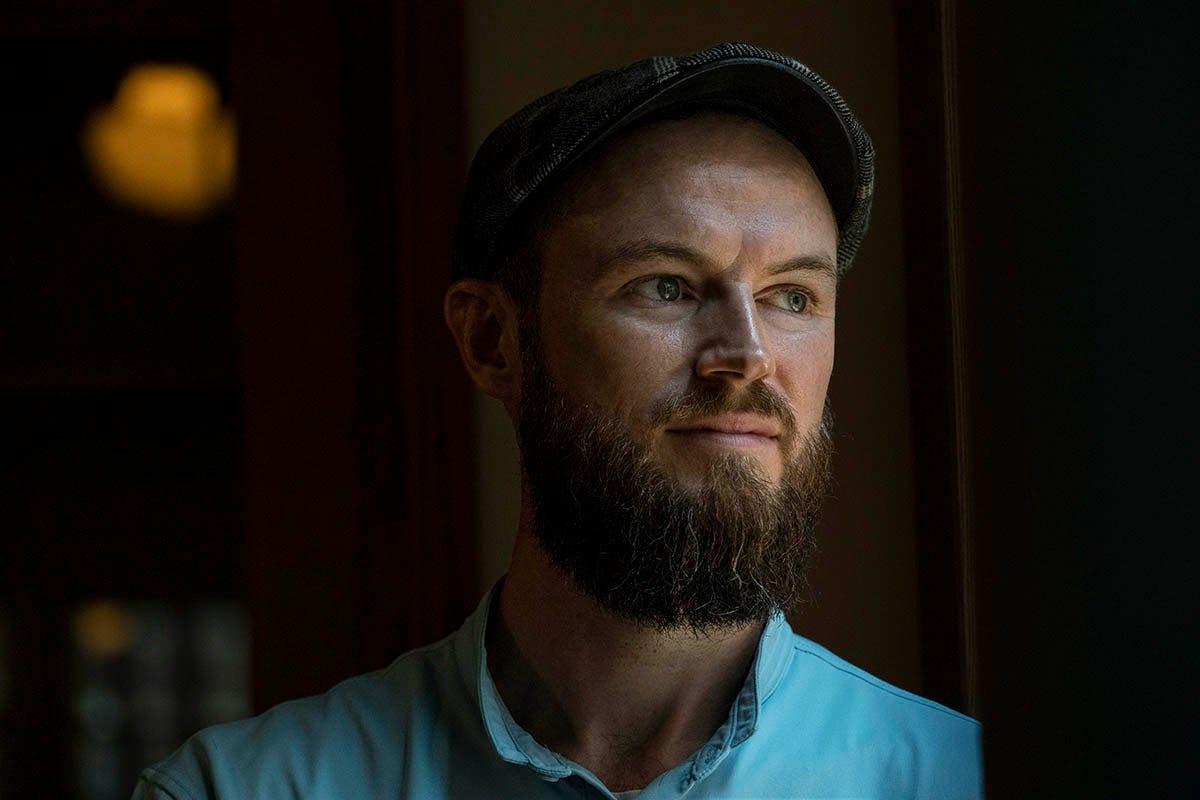
Blauvelt co-founded LaunchGood in 2013. That year, users donated $1.3 million on the site. Over the next several years, that figure jumped—to $3 million in June 2015, and then $34.4 million in December 2018. To date, Blauvelt said, users have raised more than $660 million on his site. He couldn’t believe the bank was about to destroy everything he had built.
Blauvelt was convinced that Wells Fargo was worried about funds on LaunchGood being inadvertently sent to a terrorist organization. He acknowledges there have been concerns about some of the recipients of his funding—for example, Islamic Relief, the biggest Muslim charity in Britain, has been accused by Israeli authorities of funding Hamas. A 2014 audit—paid for by Islamic Relief—found the board did include antisemites who had praised Hamas, the Iranian-backed terror proxy, but that the charity itself had no connection to the group.
Blauvelt texted me: “The U.S. government has repeatedly asked Israel for proof of these baseless allegations and have not been able to get any for years.”
He added, “We understand that we’re held to a higher standard and are subject to greater scrutiny as a Muslim crowdfunding platform, and thus we go above and beyond.”
A Wells Fargo spokesperson did not reply to a request for comment from The Free Press. A spokesman for Stripe said that the company “has a policy against commenting on or sharing the details of any user or review.”
Nothing Blauvelt said mattered. Stripe, in their original email, informed him that he had just weeks to find another payment processor.
In short, LaunchGood had been “debanked.” Debanking, or, as some financial institutions prefer, derisking, refers to a bank cutting ties with a customer deemed politically incorrect, extreme, dangerous, or otherwise out of bounds.

And the list of the debanked, including the famous and obscure, grows by the day.
Former first lady Melania Trump alleges in her new memoir that both she and her son, Barron, were debanked. “I was shocked and dismayed to learn that my long-time bank decided to terminate my account and deny my son the opportunity to open a new one,” she wrote. (Trump’s email provider also declined to continue providing her service.)
Being debanked is a family affair for the Trumps. This includes the former president, Donald Trump, who was shut out of a Florida bank account after the January 6, 2021 storming of the Capitol. So was a news app run by Donald Jr. So was MyPillow CEO (and Trump supporter) Mike Lindell.
But it’s not just Trump supporters. Also debanked have been a number of Christian charities, including Indigenous Advance Ministries, a Memphis-based charity that does philanthropic work for orphans in Uganda, and Family Council, a pro-life charity based in Arkansas. According to Democratic lawmakers, many Arab and South-Asian Americans—who are considered “high risk” because of being Muslim—have been debanked, too.
Nowhere in the Constitution is there a right to banking, although for the vast majority of Americans, it is a staple of everyday life. But as the financial sector, like most every facet of contemporary society, has moved online—and as every major American institution, including banks, have been politicized—banks have felt compelled to monitor their customers’ political and personal lives. They need to be sure that the brands of the people who bank with them jibe with their own, so that they do not upset too many other customers or potential customers.
“Debanking for political or ideological reasons should concern everyone, whatever their politics,” Samuel Gregg, an economist at the libertarian American Institute for Economic Research, told me. “In the first place, if one side does it, the odds are that the other side will play that game. More generally, it reflects a broader problem that characterizes America as a whole: the relentless politicization of everything.”
Lawmakers on both sides of the aisle are increasingly concerned about the severity and capriciousness of the bankers’ decisions.
In February of this year, Democratic senators Elizabeth Warren and Bernie Sanders and representatives Ilhan Omar, Rashida Tlaib, and Ayanna Pressley wrote to Jamie Dimon, the CEO of JPMorgan Chase & Company, voicing concern that debanking “poses a particularly severe threat for customers from the Muslim American community.”
The letter added that the “economic ramifications extend beyond individual consumers and communities in the United States, as de-risking can also undermine the stability and sustainability of countries dependent on remittances and other aid flows for economic development.”
In September, Senator Mike Lee, a Republican from Utah, introduced the Saving Privacy Act. The libertarian Cato Institute explains the bill “would essentially end the practice of requiring banks to act as law enforcement agents and would prevent law enforcement agencies from accessing customers’ financial records without first obtaining a valid warrant.”
It’s unclear exactly how many U.S. citizens—or how much money—have been debanked recently. “That data doesn’t exist,” Todd Zywicki, a bankruptcy law professor at George Mason University’s Antonin Scalia Law School, told me. But we have some idea of the scope of the problem: In January 2016, the Consumer Financial Protection Bureau started to receive complaints from people whose bank accounts had been shut down suddenly and without much reason or notice. To date, there have been more than 15,000 complaints. (A CFPB spokesperson did not reply to a request for comment.)
“In the financial sector, you have layers and layers, one on top of the other, of laws and regulations that were designed to ensure the system is not aiding and abetting any wrongdoing, but now you have the government increasingly using those tools to target not just obvious wrongdoers but political foes,” Zywicki told me. “What banks understand is the government just doesn’t make suggestions. When the government suggests something, everybody understands that’s an order, and that’s how banks respond.”
Amit Sharma, a senior official in the Treasury Department’s Office of Terrorism and Financial Intelligence under then-president George W. Bush, says plenty of innocent people and organizations have been hit.
“Debanking that pulls on your heartstrings the most is debanking legitimate nonprofit organizations or nongovernmental organizations doing humanitarian relief in high-risk places,” Sharma, the current CEO of financial compliance firm FinClusive, told me. “That’s the most egregious, because on the other side of that are people in dire need.”
Nicholas Anthony, an analyst at the Cato Institute, said the cost of debanking now affects most everyone in the United States. “Banks spend tens of billions of dollars complying with government-mandated surveillance, and those costs show up in maintenance fees, service fees, and even interest rates,” Anthony told me. “This is to say nothing of the cost incurred when you are considered too risky to open a new account or keep an existing one. However, because the government has maintained so much secrecy around the process, most Americans don’t even realize this surveillance regime is the source of the problems they face.”
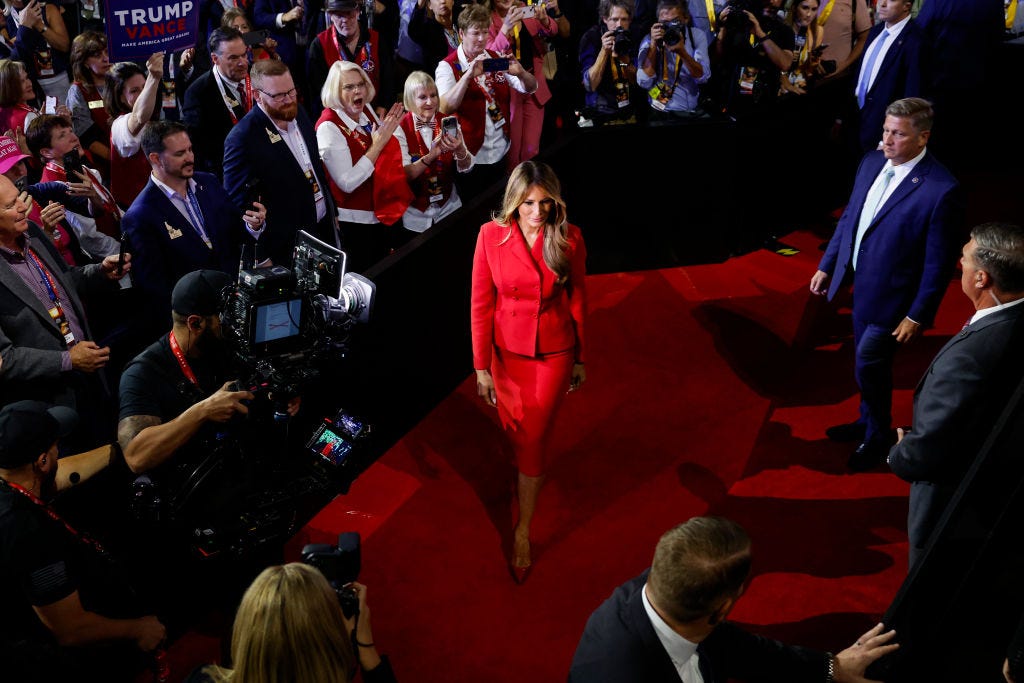
There is a long history of the federal government demanding the financial sector cooperate in stopping crimes such as money laundering and the financing of terrorism.
That stretches back at least to the federal Bank Secrecy Act of 1970, which sharply limits the rights of citizens to financial privacy and protection and bars banks from disclosing their reasons for severing ties with customers. The act has been amended many times over the decades.
Then came the terrorist attacks of September 11, 2001.
Four days after 9/11, newly installed FBI director Robert Mueller was briefing President Bush in the Oval Office. As Mueller described the FBI’s progress in identifying the hijackers, their nationalities and other biographical details, Bush cut him off. “What I want to know from you—today—is what the FBI is doing to prevent the next attack,” he said.
“I felt like a chastened schoolboy who had turned in the wrong homework assignment,” Mueller later recalled.
According to former FBI special agent Thomas J. Baker, this prompted Mueller to launch a dramatic change in FBI culture. Over the next several years, the bureau migrated from its traditional role as a law-enforcement agency to an intelligence-gathering agency. A key metric of success, Mueller said, became the “number of terrorist attacks thwarted.”
That conversation between Mueller and Bush “led to the USA Patriot Act and the beginning of the end of constitutional protections,” George Hill, a former FBI intelligence analyst who has testified before Congress about banks’ handling of the January 6 rioters, told me. The Patriot Act, which Congress passed with bipartisan support in October 2001, gave federal law enforcement vastly increased new powers of surveillance. Any wisp of suspicion of a terrorist tie could lock a business or an individual out of the financial system.
It also beefed up the Bank Secrecy Act, giving Washington greater oversight over everyone in the U.S. financial system—which amounts to pretty much everyone in the country. And it mandated that banks collect more data on their customers—also known as “know-your-customer protocols”—and report any suspicious activities.
Over the years, this machinery, which had in theory been created to stop terrorists from harming Americans, shifted its focus to Americans themselves.
“Under the Bush administration, it was more outward focused and, to the extent Americans were ensnared, it was because they were having communications with foreigners who were under surveillance,” Ilya Shapiro, a constitutional law expert at the Manhattan Institute, told me, referring to the government’s war on terrorism.
That changed with President Barack Obama, Shapiro said.
“Obama turned a lot of that apparatus inwards to go after politically incorrect businesses, where domestic terrorism could be defined to include even people who show up at school board meetings to protest policies,” he explained.
Emblematic of this “inward” approach was Operation Choke Point, which the Obama administration launched in 2013, targeting banks whose clients included legal weapons distributors and payday lenders assumed to be at risk of committing fraud or laundering money.
“The reason that we are focused on financial institutions and payment processors is because they are the so-called bottlenecks, or choke points, in the fraud committed by so many merchants,” Michael Bresnick, the executive director of Obama’s Financial Fraud Enforcement Task Force, said in a 2013 speech.
“Even many people who worry about politicized debanking will be reluctant to be seen as strong defenders of payday lenders,” Gregg, at the American Institute for Economic Research, said. “That, however, illustrates why strong stands against politicized debanking are necessary from the start. Once a precedent for this type of activity is established, people across the political spectrum will feel emboldened to use it to target groups promoting ideas they don’t like.”
In the Obama administration’s final weeks, in January 2017, it expanded the National Security Agency’s powers, making it easier for the agency to share communications with the government’s 16 other intelligence agencies, including the FBI.
Progressives fretted that President-elect Donald Trump would abuse these new powers. But Trump, who had promised on the campaign trail to end the war on terrorism, seemed uninterested in expanding the government’s surveillance powers.
In late August 2017, as the Trump administration was contending with fallout from its handling of the Unite the Right rally in Charlottesville, Virginia, the Department of Justice informed Congress that it was ending Operation Choke Point.
But President Joe Biden has renewed the spirit of Operation Choke Point by expanding the government’s spying operations on American citizens—announcing in June 2021 a “National Strategy for Countering Domestic Terrorism.”
Domestic terrorism, his administration explained in a fact sheet, “has evolved into the most urgent terrorism threat the United States faces today.” It added that the “U.S. Government will enhance domestic terrorism analysis and improve information sharing throughout law enforcement at the federal, state, local, tribal, and territorial levels, and, where appropriate, private sector partners.”
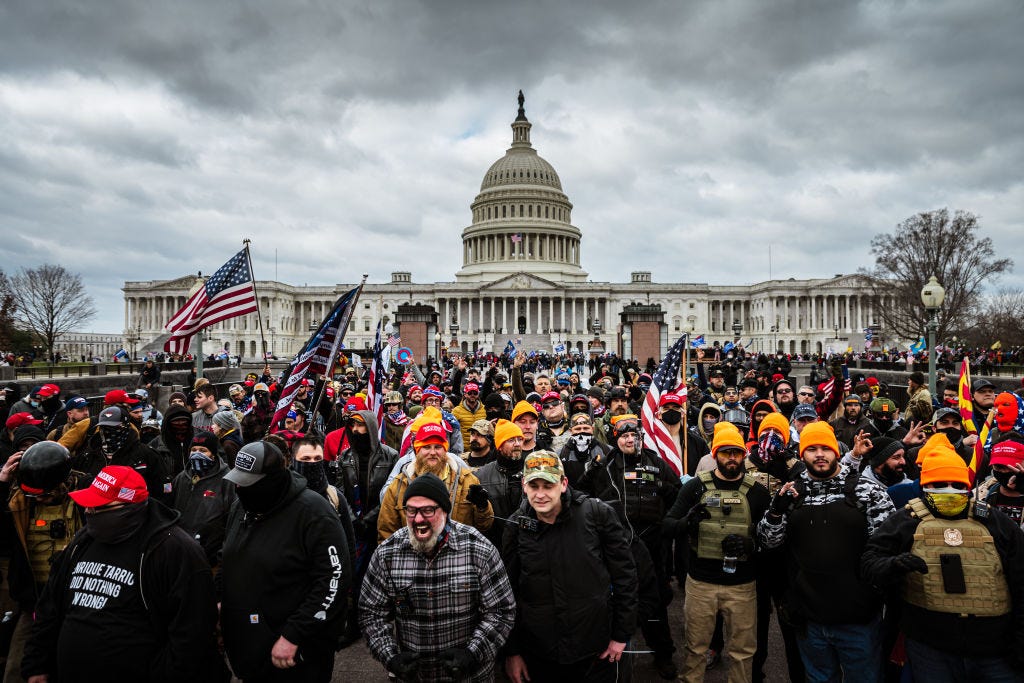
All of which is to say that, when the January 6, 2021 riot happened—the nation still reeling from an election the incumbent president refused to concede, the new president just two weeks away from being sworn in—the stage was set for a wave of debankings never before seen in America.
A few days after the riot, former FBI analyst Hill recalled that his colleague, a special agent focused on counterterrorism, had asked him to take a look at some potentially useful information that might lead to an investigation.
Hill was shocked. The information contained the names of Bank of America customers who had made a purchase with their credit or debit cards in the greater Washington area between January 5 and January 7, 2021, and had previously bought a firearm or ammunition anywhere.
“So, if you went to South Dakota to go pheasant hunting in 1996, you went to the top of that list,” Hill told me.
Hill added that, after speaking with a special agent in the FBI’s Washington Field Office, he learned that Bank of America had volunteered this information. (A Bank of America spokesperson did not reply to a request for comment. The House Judiciary Committee launched an investigation into this matter based on Hill’s whistleblower testimony, as well as others.)
Although it is not known how many January 6 rioters have been debanked, “We’ve seen so many other cases where the process is the punishment,” Hill said. “If they go for the kill shot and tried to completely garner your assets or just crush your life entirely, that’s going to wind up in court, and that’s going to wind up in discovery. The goal is to make your life difficult, so you stop being difficult for us—us being the government.”
It was about this time that a growing number of social conservatives started grumbling—mostly in Facebook chat rooms and elsewhere on social media—about their bank accounts being mysteriously closed.
This included Sam Brownback, the chairman of the National Committee for Religious Freedom, which he founded in 2022. Prior to that, Brownback had spent decades in public life, serving as a Republican U.S. senator from Kansas, the state’s governor, and under Trump, ambassador at large for international religious freedom.
In April 2022, the NCRF opened a business account at a JPMorgan Chase branch in Washington, D.C., Brownback told me. Three weeks later, the bank, without providing any explanation, closed it.
The cancellation had a ripple effect, causing some of the NCRF’s other financial institutions to withdraw their services, threatening the nascent organization’s ability to launch.
After NCRF repeatedly pushed Chase for an explanation for why its account had been terminated, Chase told NCRF that it would consider a reinstatement if “NCRF disclosed donors, provide a list of intended fund recipients for the next election cycle, and the full details of how the NCRF would select pro-religious freedom candidates to support,” according to a synopsis of the calls and emails between NCRF and Chase provided by NCRF. (Chase did not reply to a request for comment.)
NCRF did not comply.
The organization was able to find a new bank. But the experience caused Brownback to make fighting the debanking of people on religious grounds one of the group’s missions. They have given this effort the hashtag #ChasedAway.
As Brownback wrote in a September 27, 2022 letter to JPMorgan Chase CEO Dimon, “We are concerned that religious institutions, houses of worship, and people of all faiths are at risk of having their business, credit, or even personal or private bank accounts terminated for any or no reason at all.”
At Chase’s annual shareholder meeting, on May 16, 2023, Dimon said of the bank’s handling of NCRF: “No apologies are necessary, and no corrective action is necessary.”
Brownback assumed that his experience was typical of a large number of social conservatives—the vast majority of whom, he said, never speak up after they’ve been debanked.
Most people who receive a cryptic, anodyne-sounding email informing them that their account “has undergone a status change,” as Brownback put it, “just went away quietly and found another bank.”
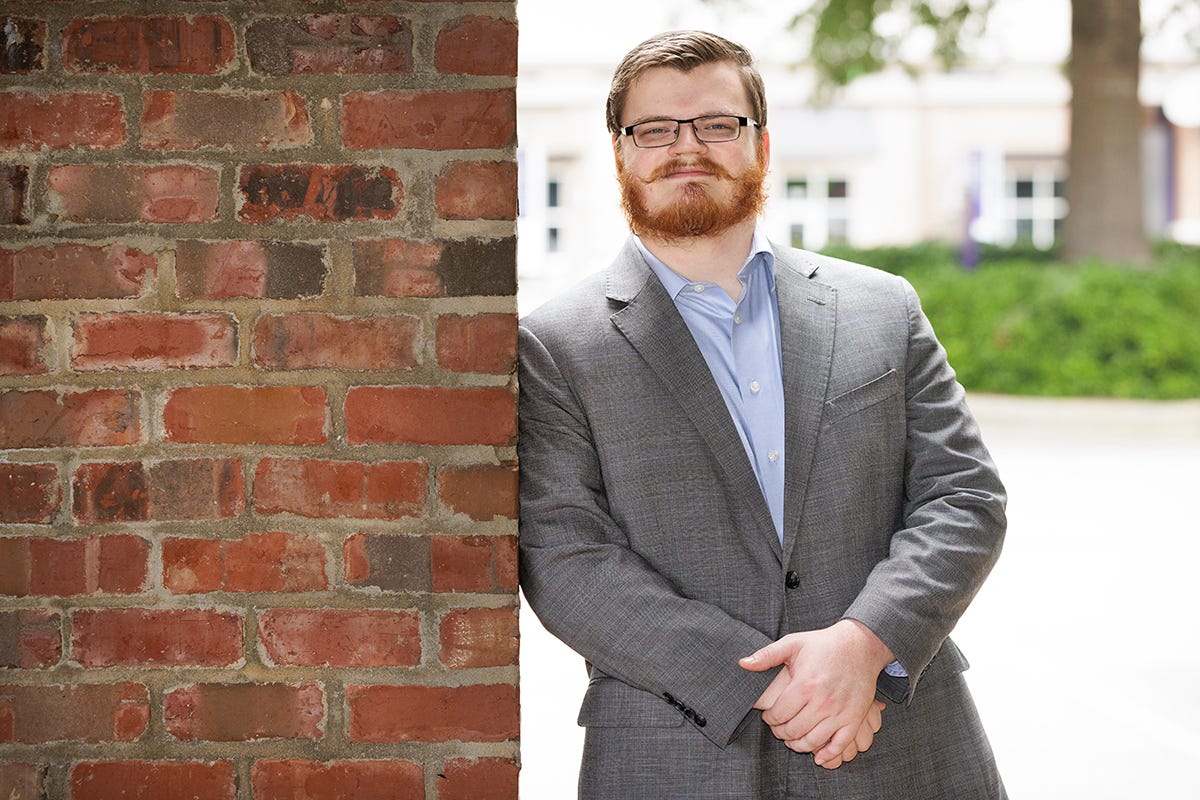
On July 22, 2022, Stephen Horn, a 26-year-old computer programmer who lives with his parents near Raleigh, North Carolina, received a disturbing letter from Truist bank.
“We regret to inform you that we have made a decision to close your account(s) with us as outlined below,” began the letter that Horn showed me. It was sent from the bank’s corporate headquarters in Winston-Salem.
The bank added that this decision had nothing to do with his credit. He had about $20,000 in his account, and he had 30 days to withdraw it. (A Truist spokesperson did not reply to requests for comment.)
Horn immediately guessed—although the banking secrecy laws keep him from confirming—that his activities around the January 6 riot were the reason.
The night before the riot, Horn rode in a chartered bus full of Trump supporters from Raleigh to Pentagon City in Arlington, Virginia. The next morning—January 6—he took the Metro into Washington, D.C., watched the president address his supporters outside the White House, and followed them up to the Capitol.
With a Raspberry Pi camera attached to his skateboard helmet, Horn filmed the mob breaking into the Capitol and Speaker Nancy Pelosi’s office, and delaying a joint session of Congress from counting the Electoral College votes that would formalize Joe Biden’s victory over Trump.
Shortly afterward, Horn posted his video online and photos of him appeared on social media. Tipsters notified the government of his identity. He was interviewed by the FBI and says he gave them his footage to help the government identify lawbreakers.
Horn saw himself as an independent journalist documenting a historic event. But the authorities saw him as a man who went to the Capitol to participate in and film the vandalism. Their view prevailed with the jury that in September 2023 convicted him of four misdemeanor counts, including disorderly conduct in the Capitol. In January, he was sentenced to a year of probation, a $2,000 fine, and 90 hours of community service.
His activities have brought his entire family to the attention of the federal government. In April 2023, Dan Horn, Stephen’s father, flew back to Raleigh from a missionary trip in Nigeria. When Dan arrived at Customs and Border Protection, his name popped up on their computer. “He was explicitly told by a CBP agent that he was flagged for questioning because of me,” Stephen Horn said.
Two weeks later, Customs and Border Protection revoked Dan’s Global Entry status—the “trusted travelers program” that enables frequent, low-risk globetrotters to reenter the United States faster.
Stephen Horn has managed to open a new bank account, although he wouldn’t tell me where. He didn’t think it was a good idea to draw attention to the bank.
Horn has a minimal online presence, and said he is not even a Trump supporter. When I interviewed him about being debanked, he said, “I had heard of corporations in the financial or service sectors banning politically ‘controversial’ individuals, but it had always been people who had much larger platforms and impact.”
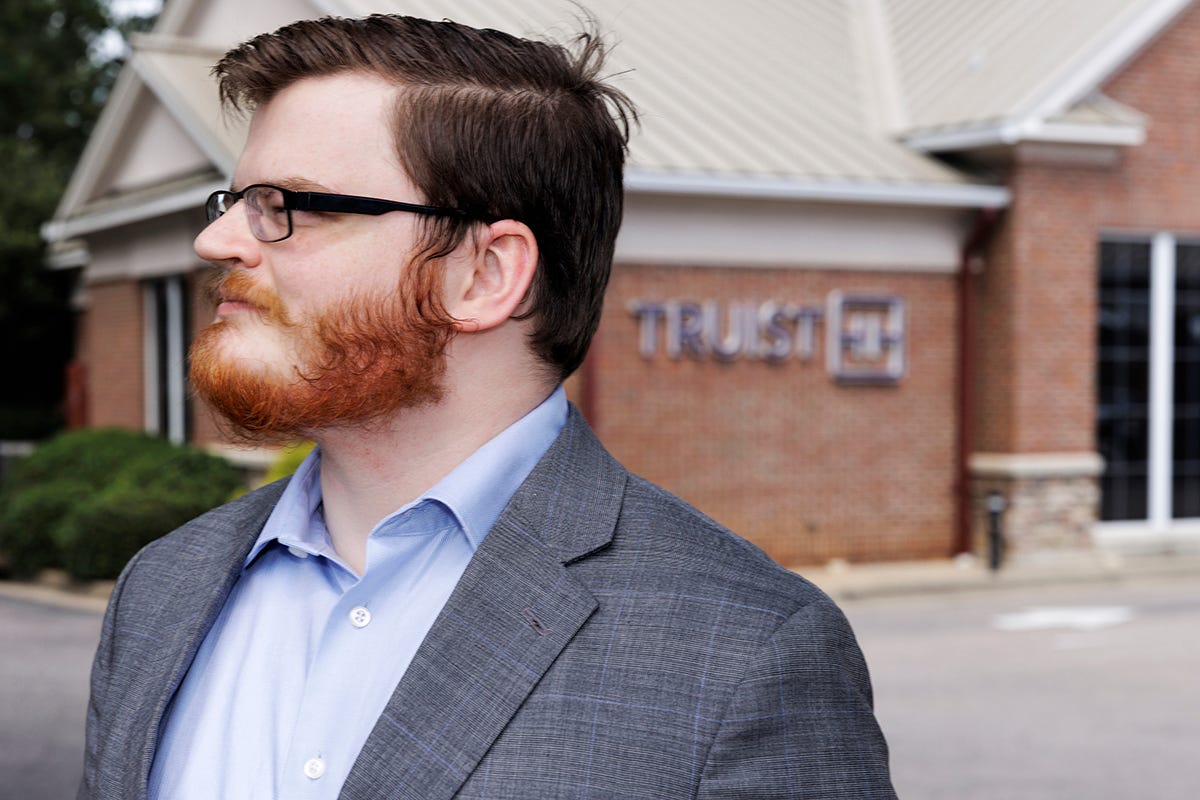
Chris Blauvelt and LaunchGood eventually found a new bank and a new payment-processing company. He doesn’t care to identify them either.
In the post-October 7 world, questions continue to swirl around who LaunchGood funds. The Wall Street Journal reported that Israel questions some of LaunchGood’s recipients, saying they have ties to Hamas. Blauvelt responded that all charities raising money on LaunchGood must “pass three separate compliance checks”—including audits, screening of the people receiving that money, and “continuous monitoring of programs and transactions by our compliance software,” which, he noted, was developed by FinClusive, former Treasury official Amit Sharma’s financial-compliance company.
Blauvelt also says he will not be silenced if he runs into debanking troubles again. “Back when Stripe offboarded us, we didn’t even talk about it publicly for maybe a year or two, because it was so embarrassing,” he said.
So, Blauvelt said, LaunchGood plans—by the end of this year—to launch its own payment processor, PayGood, which will rely on smaller, more inclusive banks. (“Good luck with that,” George Mason’s Zywicki said. He predicted smaller banks would ultimately fall into line with the feds.)
Conservatives, no surprise, insist that it is those who run afoul of the Democratic establishment who are at the greatest risk of being debanked.
“Financial giants like Bank of America and Wells Fargo have a history of ‘debanking’ people who hold political views disfavored by the Biden-Harris administration,” Travis Taylor, a political scientist who has done extensive polling on debanking for the right-wing Florida think tank Foundation for Government Accountability, told me in an email.
All of which points toward an emerging, bipartisan, anti-debanking bloc on Capitol Hill.
“Every American should have the ability to take out a loan or save for their future without fear of discrimination or having their accounts closed without explanation,” Democratic representative from California Ro Khanna told me.
Zywicki told me it would help if those who have been debanked or know others who’ve been shut out of the banking system simply spoke up.
“When debanking happens to someone, they don’t raise a fuss, because what they’re most concerned about is finding a bank account somewhere else and getting back into the financial system,” he said.
Zywicki added: “If you don’t have access to financial services, you basically don’t exist.”
Rupa Subramanya is a reporter for The Free Press. Follow her on X @RupaSubramanya and read her piece “The ‘Giant Grift’ That Swallowed Wall Street—and Maybe Your Savings.”
To support The Free Press, become a subscriber today:


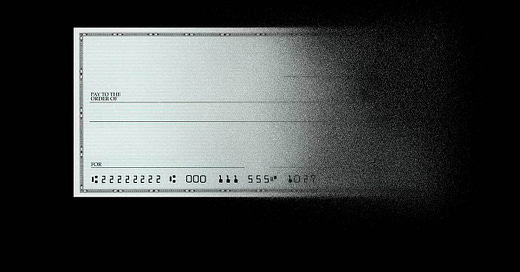



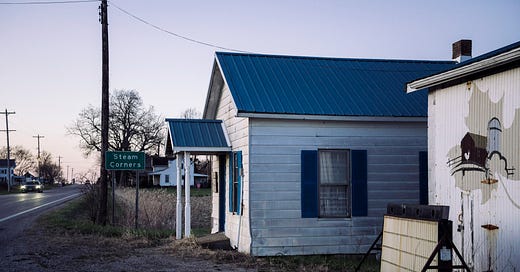
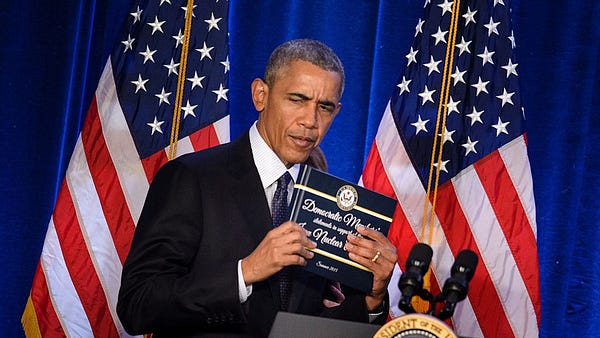


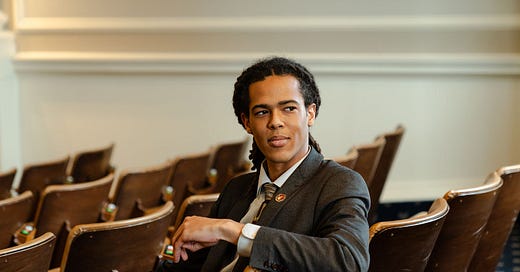
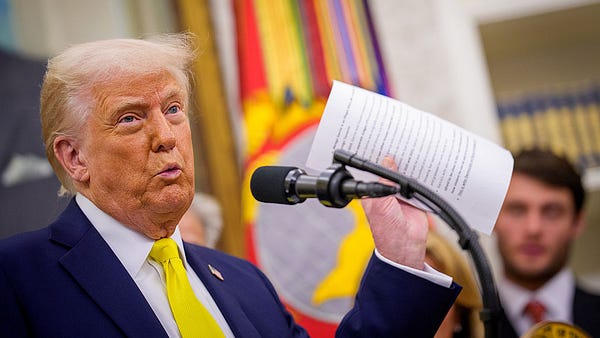

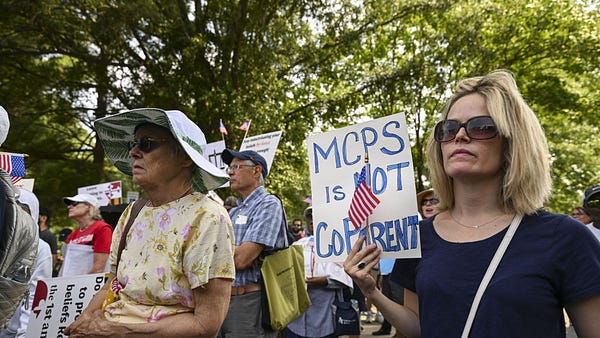

This is a tough nut to crack, but not impossible. On one hand, we do need to stop terrorist funding and crime based money laundering. On the other hand, targeting legit non-profits and using political bias to close accounts can't be tolerated. I hate to say it, but it appears banks may need to come under even tighter regulation to ensure fairness to consumers..
One mitigation that would partially alleviate the pain of capricious and often politically-motivated debanking (such as the multiple instances of JPM and conservative-leaning organizations) would be a full 'number portability' requirement akin to telephone numbers. Switch banks, and all of your automated transactions, from direct deposits to recurring payments would simply be rerouted. Of course we'd need significantly better security to avoid being scammed.